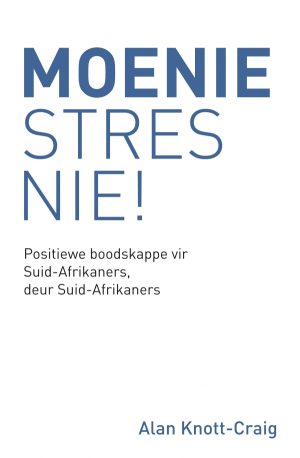Description
By the time democracy was established in South Africa in 1994, I was already a successful capitalist. It was entirely unnecessary for me to seek out the black economic empowerment (BEE) appointments that were elevating black business people. I had sufficient money to ensure comfort for my family, and I had the business to rebuild and run after the devastating fire just before the dawn of our democracy. When Parliament started debating bringing legislation to enact black economic empowerment, I realised that with or without me, BEE was going to be a reality in the country’s economic landscape. We all thought the process would be short-lived and smooth. At about the same time, my white business colleagues were knocking at my door daily asking that I invest in their businesses. This resulted in the establishment of my investment company in 2002 to focus on such opportunities. I was able to hand over the reins of Black Like Me in 2004 to my wife. During the first 10 years of our democracy I supported the African National Congress. It was encouraging to see that housing, electrification, and provision of water were priorities for the government and that jobs previously the preserve of white people were now being taken up by qualified black applicants. But gradually I began to have doubts about the focus of the ANC. It seemed as though the ANC itself was the main priority, that party leadership instead of national leadership seemed to have taken over, and that personal agendas instead of national priorities were prevalent.
Various incidents began triggering alarm bells for me, such as Thabo Mbeki’s open support (quiet diplomacy) for land grabbing by the Zimbabwe African National Union–Patriotic Front, resulting in Zimbabweans suffering massive human rights violations; the emergence in South Africa of crony capitalism by cadres close to power; corruption in the civil service happening almost with impunity; and failure to provide appropriate education to poor people. South African blacks and some whites had fought for freedom, and yet instead of our leaders supporting and imposing laws that would elevate the humanity in the country and on the continent, their policies soon began to resemble the policies of our oppressors of old.
By 2004 the situation had degenerated to such an extent that I decided that I could no longer support the ANC and I cast my first vote for the Democratic Alliance. As the 2014 election approached, I knew I could no longer maintain a tacit approval of the government and its abhorrent policies while voting for the DA. I had no faith in the ANC whatsoever, especially in light of the president’s inability to prioritise the most urgent needs of the nation, namely poverty and employment. Institutions of democracy were being eroded, the free press mandated by our Constitution was being challenged and limited, and divisiveness began to show. I was hopeful that the electorate would send the government a message of dissatisfaction, but I decided that if the ANC won more than 60% of the vote, I would have to announce my commitment to challenging them and help in facilitating the creation of a viable and credible opposition that represented the aspirations of all South Africans.
While I have always kept myself informed of political events, business has been my main focus. However, as the 2014 election drew nearer, and I feared that the ANC would in fact have a good election result, I realised it was time to consider how I could contribute to the political future of the country. I paid attention to political conversations taking place across the country among my friends, colleagues, and associates. Participation as an interested observer and listener was no longer an option, and I decided I would publicly join the Democratic Alliance in order to play an active role in trying to achieve the South Africa that I believe all reasonable South Africans really want.
I am not a politician; I am foremost an entrepreneur. I believe in capitalism as a way of life, a natural system that is an enabler of economic prosperity, a supporter of freedom, and a natural means of allowing every single citizen to be an economic participant. In this book, I draw from my own experiences and education, both national and international, to illustrate how I envisage a South Africa engineered by the democratic principles that were enshrined in the Constitution drawn up after 1994 and propelled by capitalism.
Capitalism is a much-maligned concept in South Africa among those who have never overcome their prejudicial connection of capitalism and apartheid. Many previously and currently disadvantaged South Africans consider capitalism to be twinned with apartheid and have the notion that capitalism was one of apartheid’s weapons for impoverishing the black majority. Communist elements within the country supported this fallacy to boost their own restrictive policies. Apartheid’s economic system was racially based, and whites could flourish under capitalism, but success was essentially denied to the black population. If Bantu education had been up to the standard of white education, and capitalism had been allowed to take root and develop in black areas, black people would have been far better off. The whole country would have been richer socially and economically. The informal traders would have been able to establish their own businesses legally and would have had the necessary education to take their enterprises into business centres, employ staff, and train new workers. It was not capitalism that restrained economic growth for black people; it was the evil alliance of Bantu education and black disempowerment that kept people from being self-sufficient and entrepreneurial. Entrepreneurship is a natural way out of poverty. When desperate people need to feed their families, they turn to their own skills and use these to earn money.



